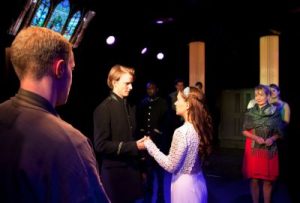
Margaret Thatcher, greyish fair hair neatly combed and her pointed school marm-ish face almost smiling, stood chirpily on the steps of 10 Downing Street in London. It was May 1979 and she had just become Britain’s first – and so far only – woman prime minister. She was, as always, triumphantly holding a handbag. This was none of your gray-suited, gray-haired, gray-minded males that Britain was accustomed to. Mrs T was a flesh and blood female. Her face powder, perfume and lipstick-containing handbag – badge of a certain sort of womanly wiliness – proved it.
Democracy?
Not that she’d elected by the people like a US president. Not a bit of it. That’s not what the Brits mean by democracy. The Great British Public votes only once in each general election – for a member of parliament to represent their region in the House of Commons at Westminster. And each MP is a member of a political party. Elected MPs decide who is going to lead their party. Then the leader of the party which has won the most ‘seats’ (actually they’re aren’t enough chairs to go round if they all turn up at once) in parliament at an election is invited by The Queen to form a government and to become Prime Minister.
Call to the Palace
Margaret Thatcher had become leader of the Conservative Party – traditionally the guys who want private enterprise and free choice – in February 1975. So when her lot romped home with a big parliamentary majority in the 1979 election, Margaret’s day had come. She and her handbag trotted gleefully off to the Palace for a heart-to-heart with Her Majesty and hey presto, Britain had its first woman prime minister. And it was clear from the beginning who was in charge. ‘I don’t mind how much my ministers talk, as long as they do what I say,’ she said in 1980.
Grocer’s daughter
Margaret Hilda Roberts was born in Grantham – a Lincolnshire town about 55 miles north-west of Cambridge – on 13 October 1925. Her dad was a grocer in the town, so she was no privileged product of the English class system. But she was clever and knew it. When, aged 9, she won a poetry reading competition and was told by her school’s principal that she was lucky to win she replied: ‘I wasn’t lucky. I deserved it.’
Clever clogs
She was awarded a scholarship to Kesteven and Grantham Girls High School which gave her a solid old fashioned education – lots of spelling, reckoning and reading. Chemistry was her thing and in in 1943 she hurried off to Somerville College Oxford to study it. And, maybe influenced by the biscuit selling father back home who was involved in local politics and had been Mayor of Grantham, it didn’t take her long to join the Oxford University Conservative Association. Ever one to be in charge of things, she soon became its president.
Workaholic?
Famously she had eons of energy and needed very little sleep – which is just as well because she can’t have had much time for it in her 20s. She worked for four years as a research chemist after graduation from Oxford, studying law at the same time with the intention of becoming a barrister. She stood unsuccessfully for parliament in 1950 and 1951 and married businessman Denis Thatcher in 1951. Then, in 1953 she managed to produce twins and to complete her law studies so that she was ‘called to the bar’ as a specialist taxation lawyer by Lincolns Inn in 1954.
Thatcher the milk snatcher
Her political career really took off in 1959 when she was elected Member of Parliament for Finchley, North London. She held a whole string of offices within her party and became Secretary of State for Education and Science when her party was returned to Office in 1970. ‘Thatcher the milk snatcher,’ they called her because she stopped the long-established practice of offering British kids a daily dinky little bottle of free milk at school.
Rod of iron
As Prime Minister, despite the femininity of her handbag, she had a reputation for masculine toughness and determination. ‘The Iron lady’ firmly quashed the Argentine invasion of the (British) Falkland Islands in the South Atlantic in 1982 with plenty of troops and no shilly-shallying. At home she refused to allow the trade unions to tell her and her government what they should do with the country’s money. She believed that money was the key to peace and prosperity. ‘Pennies don’t fall form heaven – they have to be earned on earth’ she told a newspaper in 1979 ‘No one would remember the Good Samaritan if he’d only had good intentions. He had money as well’ she said in a 1986 TV interview.
Royal we?
In 1989 she told the press that ‘We have become a grandmother’ – a slip of the tongue which led to delighted accusation of delusions or royal grandeur. The use of the royal ‘we’ (she presumably meant herself and Denis)
sounded like the old royal custom of using ‘we’ instead of ‘I’. Had she got so carried away that she thought she was more important than the Queen?
Brighton bomb
During her 11 years at Downing Street she made a new record by becoming the only British prime minister ever to stay in office when her party won three consecutive elections. But there were some very difficult times. In 1984 a terrorist planted a bomb in a Brighton hotel where the Conservative Party was holding its annual conference. Five senior members of the party were killed and several seriously injured. ‘Now it must be business of usual’ Mrs Thatcher told the world grimly a few hours later.
Treachery
She was eventually ousted as party leader (‘treachery with a smile on its face’ she said bitterly) in 1990. She was awarded the Order of Merit as a consolation prize by the Queen a month later. In 1992 she became Baroness Thatcher of Kesteven and, in 1995, a member of the Most Noble Order of the Garter. So you could say the class system caught up with her in the end.
The end
Margaret Thatcher died in 2013 after a long and lonely period as a widow with Alzheimer’s disease. Meryl Streep depicts this period very skilfully in the 2011 film The Iron Lady. Many Brits loathed Margaret Thatcher and her death was greeted with a strange mixture of glee and sadness.








